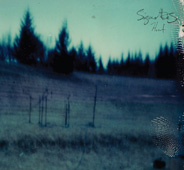I've never been good at proselytizing. Those of us who grew up in the Baptist tradition called it "witnessing." "Proselytizing" sounds a bit more like something you would do in a laboratory, but all the church literature, at least when I was a kid, implied that this was some sort of requirement. If you didn't do this, you were a sinner, you were going to Hell. The action itself was usually subsumed in bringing your friends to church, hoping that once they got there, they would succumb to an emotional breakdown when confronted with the bare truth of the Gospel, no matter how ineptly we presented or represented it. The necessity of proselytizing was written into our desire to be teetotalers and non-smokers and to patiently wait until marriage to have sex (although we never used words like "adultery" and "fornication," preferring to incorrectly simplify both in the word "sex"). It was sometimes said that our friends - people who smoked, drank, had sex, cussed, etc. - would notice our abstinent behavior and wonder at the differences in our lives, and also at the impetus behind those differences.
Well, notice they did. Wonder, they did not. The reason for this, at least in my own case, was probably that there was no particular impetus beyond my own mercenary sense of Christian duty. If we are to believe the depths of our souls which the Truth plumbs - according to the Gospels, Proverbs, Psalms, and narratively, all of Scripture - then it must be said that I was perhaps a greater sinner than them all. In any case, my attempts at proselytizing have been few and rather disastrous. Let it be said, I still measure by my own myopic sense of vision. We cannot discount the windy rushing of a Spirit whose movements we cannot quantify.
At the very least, my experience has taught me that this point-and-click system of theological causality which we, which I, have termed "witnessing," is, to put it bluntly, not. It's not allowing us to bear witness. It's more akin to selling washing machines than it is the introduction of a bride to her groom. It has been very freeing to be led along to understand that Sincerity is the name of the horse pulling the cart of seeker-sensitive apologetics. It is certainly not obligation, not
Should. Yes, we should, but God loves
cheerful givers. Givers who are glad to see someone else have it. Givers who cannot wait to pass it along and forget about it. On our best days, this is not most of us. I'd like to think myself a cheerful giver, but when someone gives me a gift card, and I blow it all at McKay's on used books for myself, that's not selfless. I might deserve to spend it on myself, we could say, considering it was a gift to me. But we can't chalk that up to being selfless.
In the same vein, I'd say that our genuine Father God appreciates earnestness in presenting the Gospel. In Paul's writings, when he lists off the groups of people who are going to suffer death a second time, liars are consistently among them. I don't know if the reason for this is specifically legal - at least, not in the easy way we'd like to think. Perhaps liars are pointedly listed because we need to be honest with ourselves to drink from the cup of Christ. "A man should examine himself before taking the cup" (1 Corinthians 11) certainly does not mean that we should have achieved some semblance of temporary perfection brought on by a mechanical plea for forgiveness the second before the bread and wine touch our lips. So what does it mean? In all likelihood, it means that we should have a meek view - that is, an honest and gracefully realistic view - of ourselves. Honesty is a prerequisite to faith. Dishonesty requires no faith, because it only needs itself.
My realistic view is this: I can't witness without caring for a person. I can't care for a person without being silent long enough to pay attention and appreciate the small graces in that person's life. I can't do that without the grace of Jesus.











